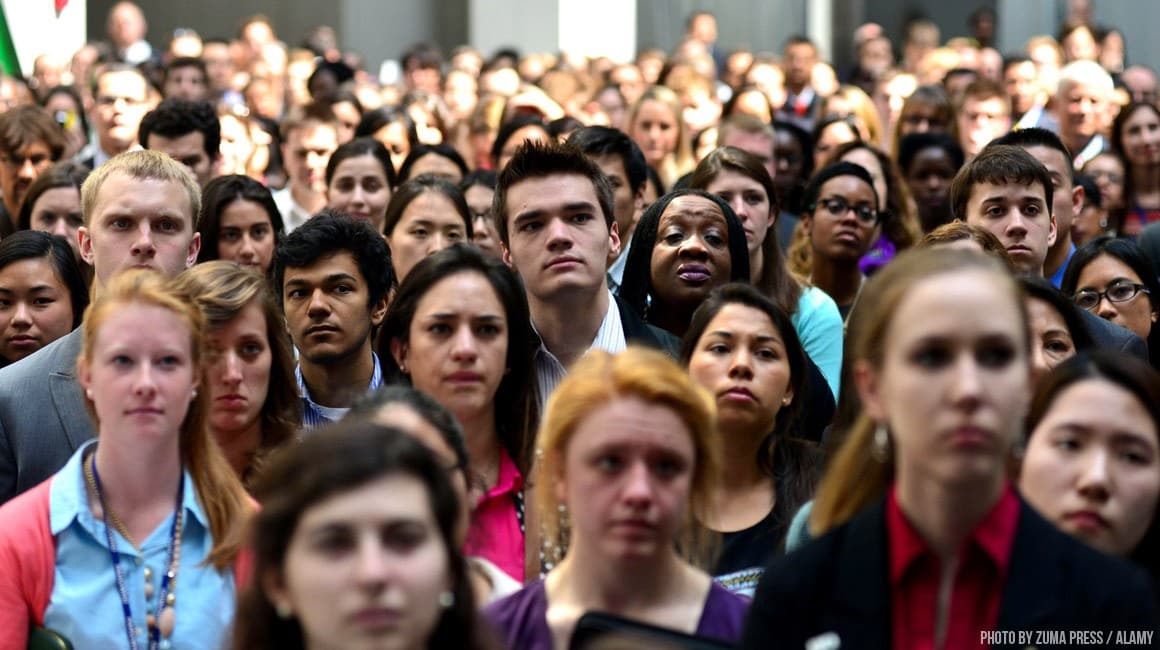HILLARY CLINTON COULD LOSE THE ELECTION BECAUSE MILLENNIALS DON’T LIKE HER
Polls show how young Gary Johnson and Jill Stein supporters could hand Donald Trump the White House.
If Hillary Clinton loses the election to Donald Trump, it will be because young people didn’t vote for her. That’s not to say that they like Trump—on the contrary, polls show millennials dislike the Republican nominee by historic proportions. About two-thirds of young voters say he is unqualified to be president, racist, and biased against women. But instead of voting for the one candidate who can beat him, large numbers of millennials are planning to vote for third-party candidates who have no chance of accomplishing anything, except perhaps tipping the scales for Trump. According to one recent Quinnipiac poll, 29 percent of likely voters between the ages of 18 and 34 would rather vote for the libertarian candidate, Gary Johnson, and 15 percent say they will vote for Green Party candidate Jill Stein. Clinton received just 31 percent support in the poll—more than Trump’s 26 percent, but far below the numbers she needs to ensure a comfortable margin of victory.
At a campaign event Monday addressing young voters at Temple University, in Philadelphia, Clinton’s desperation was palpable. “I need you,” she told the crowd, addressing not just the 300 in attendance but the 70-or-so million millennials who are over 18, but are mostly not planning to vote for her. “I need you as partners, not just for winning this election, but for driving real change,” she implored. “Not voting is not an option,” she added. “That just plays into Trump’s hands. It really does.”
Despite the historic nature of her candidacy—and the potentially history-ending nature of Trump’s—the numbers for Clinton look inescapably grim. A G.W.U. Battleground poll taken in September found that only 22 percent of voters between the ages of 18 and 34 believe that Clinton “says what she believes,” and only 38 percent believes she is “honest and trustworthy.” Though Clinton and her positions overlap neatly with millennial views—free college tuition, apprenticeship programs, birth control, battling climate change and income inequality, and others—she acknowledged, as she spoke, that she had a massive trust gap to overcome between her and young voters. “Even if you’re totally opposed to Donald Trump, you may still have some questions about me,” she said. “I get that. And I want to do my best to answer those questions.”
But with just seven weeks left until Election Day, Clinton is running out of time to answer those questions—and millennial voters apparently have plenty of them. Long before the F.B.I. launched an investigation into Clinton’s e-mail practices at the State Department, the Democratic nominee was hammered by SenatorBernie Sanders for giving paid speeches to Goldman Sachs, for allegedly flip-flopping on the Keystone pipeline and the Trans-Pacific Partnership, and for conspiring with the Democratic National Committee to rig the primary election in her favor. The surge of youth support turned a primary campaign that was once expected to be a coronation into an ugly, drawn-out battle between the two Democrats. And while Sanders has since endorsed Clinton, her campaign has struggled to consolidate the support of the Vermont senator’s aggrieved primary voters.
Clinton has made some inroads with Sanders’s millennial base, largely by incorporating chunks of his platform—including free or debt-free college, paid leave, and a higher minimum wage—into her plan, but remains far behind where she needs to be to secure the youth vote. A new CBS-YouGov poll in Ohio, for example, shows Clinton’s support from young voters down six points from earlier this summer. She’s still winning the cohort by 32 points, but it’s a sizable drop from the 63 percent of Ohio voters under 30 won by President Barack Obama in 2012, according to exit polls at the time.
Donald Trump, who is one of only two presidential candidates with a chance of becoming president next year, has called climate change a hoax, wants to deport millions of undocumented immigrants, and has suggested he would ban nearly all of the world’s Muslims from entering the United States. But the majority of millennials, nearly all of whom disagree with Trump’s positions, are not sufficiently excited by the Democratic alternative to do anything about it. It has seemed to matter little that Sanders and Elizabeth Warren, two populist Democrats who are beloved on the left, have hit the campaign trail for Clinton. A somewhat insipid op-ed for Mic, pandering to millennials, is unlikely to move the needle, either.
In recent weeks, Clinton has tried a new tact, telling stories about her youth in an effort to remind younger voters that she, too, was once a trailblazing, even radical figure in Democratic politics. On Monday at Temple University, Clinton attempted to be her own surrogate to a younger generation, recalling her days as a student activist during the Vietnam War. And she tried to project authenticity, in her own, reminding the assembled crowd of students that she has always been a better public servant than a politician. “Even all these years later, I confess I don’t enjoy doing some of the things that come naturally to some politicians, like talking about myself,” she said, drawing a sharp contrast with her reality-TV opponent. “But I took that leap then for the same reason I'm running now—to level the playing field for children and families.” It remains to be seen whether that will be enough.

No comments:
Post a Comment